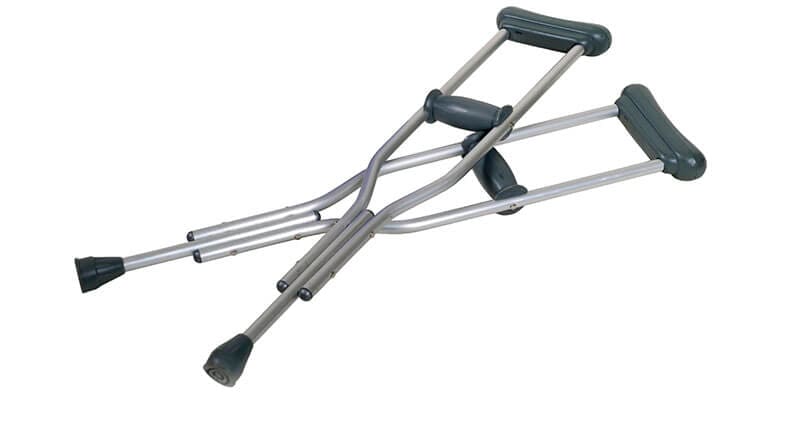
Workers Compensation Lawyers Adelaide
What can I claim Workers Compensation for?
To claim workers compensation, you do not have to be at fault, as long as you were injured in a situation that is covered, for example, doing your normal job.
Sometimes a worker will be entitled to common law damages where an injury has happened due to the negligence or fault of a third party.
A seriously injured worker, who is a worker who has been assessed as having a whole person impairment of at least 35 per cent could be able to pursue a common law claim.
A common law claim will often give rise to more generous compensation. You might not be aware that you are entitled to a common law claim.
Our experienced workers compensation lawyers in Adelaide will advise of all possible claims after an initial obligation free meeting.
Please contact us to book.
Workers Compensation Lawyers
What can I claim workers compensation for?
Our workers compensation lawyers are available to support you if you have been injured on the job. You may be able to claim the following:
- Weekly payments of income maintenance (sometimes called income support);
- Medical and rehabilitation expenses;
- Lump sum compensation for noneconomic loss (sometimes called pain and suffering) or economic loss where you are left with a permanent impairment.
How does the Workers Compensation Scheme work?
In South Australia, the Return to Work Scheme is paid by insurance premiums by businesses who employee people. There are two compensating authorities that manage claims for Return to Work SA Corporation - Employers Mutual and Gallagher Bassett. In some cases, an employer might be self-insured in which even they manage their own claim.
Contact us to arrange a meeting.
FREQUENTLY ASKED QUESTIONS
Q. What is workers compensation?
The Workers Compensation (sometimes called Return to Work) Scheme is a Government Scheme which was set up to compensate people who suffer work related injuries. If you were injured at work or injured due to something related to work then you may be entitled to claim compensation for your injuries.
Your work needs to be a significant contributing cause for the injury in the case of a physical injury. With psychiatric injuries, work has to be the significant contributing cause.
Q. If I can't work due to a work injury, how long will I be compensated for my wage loss?
If you are successful in claiming compensation, the compensating authority will work out your Average Weekly Earnings (AWEs) over the 52 weeks immediately prior to the date of injury. For the first 12 months after the injury, you will receive 100 per cent of your AWEs for every week you are totally incapacitated for work. For those weeks where you have a partial incapacity, you will receive your AWEs less any amount you earned at work.
After the first year of income maintenance (or income support), you are paid up to 80 per cent of your AWEs for the next year.
After two years from the date of injury, you will not be entitled to income maintenance. The only exception is if you can show that you are a seriously injured worker which requires a 35 per cent whole person impairment as a result of the injury.
This is a high threshold and most people will not be seriously injured workers.
Q. What will workers compensation cover?
Injuries at work are not just physical injuries. They can be as a result of stress. It could be a pre-existing injury or disease that worsens. Physical injuries covered include:
- Injuries suffered whilst travelling for work;
- Injuries sustained at work as a result of doing work activities;
- Injuries sustained whilst receiving medical treatment for a prior work injury;
- Diseases caused by work or made worse by work;
- A pre-existing condition (whether you knew about it or not) made worse by work.
Q. How do I know my employer has workers compensation insurance?
In South Australia, all employers must have workers compensation insurance. The insurance company pays for the claim.
Q. What do I do if I have been injured at work?
To make a claim, you need:
- To immediately report your work place accident injury to your employer;
- To obtain medical evidence (Work Capacity Certificate) to prove your injury is work related. This must be obtained from a qualified medical practitioner;
- To lodge a claim with your employer;
We can help you lodge your claim if you have not lodged your claim yet.
Q. Will I lose my job if I make a claim?
Normally you will not lose your job if you make a claim for workers compensation. If you cannot do your job because of an illness or injury, this can affect your employment.
Q. How do I claim a lump sum for permanent impairment?
If you have permanent impairment as a result of your work injury, the Return to Work Scheme provides two payments:
- A noneconomic loss payment, sometimes called a pain and suffering payment;
- An economic loss payment which is available to workers who have a whole person impairment (WPI) of between 5 per cent and 34 per cent.
The following steps are required for your permanent impairment claim by our workers compensation lawyers:
- Your medical condition is stable (or to use the jargon you have obtained maximum medical improvement);
- Your WPI is at least 5 per cent;
- The assessment has been carried out pursuant to the guidelines. Psychological injuries and symptoms are not taken into account in the assessment process;
- The assessment is carried out by an accredited assessor. Most doctors are not accredited assessors.

